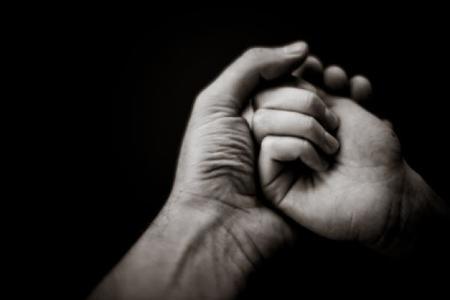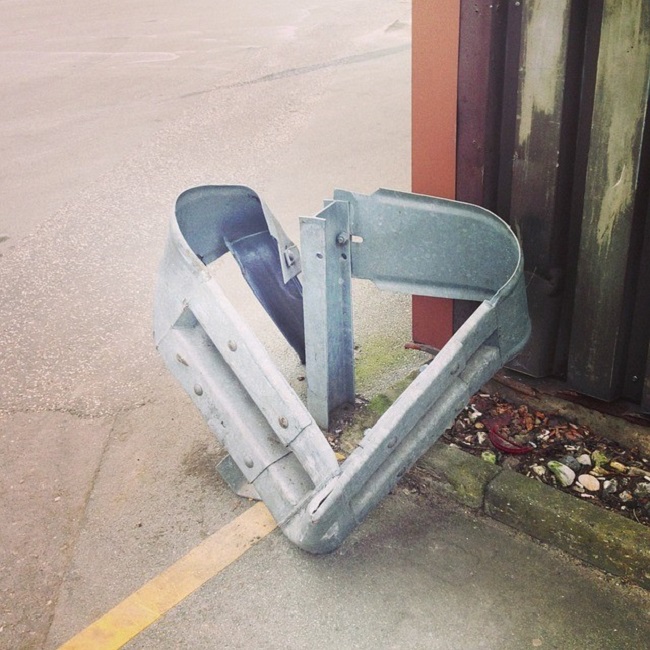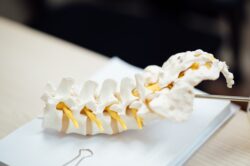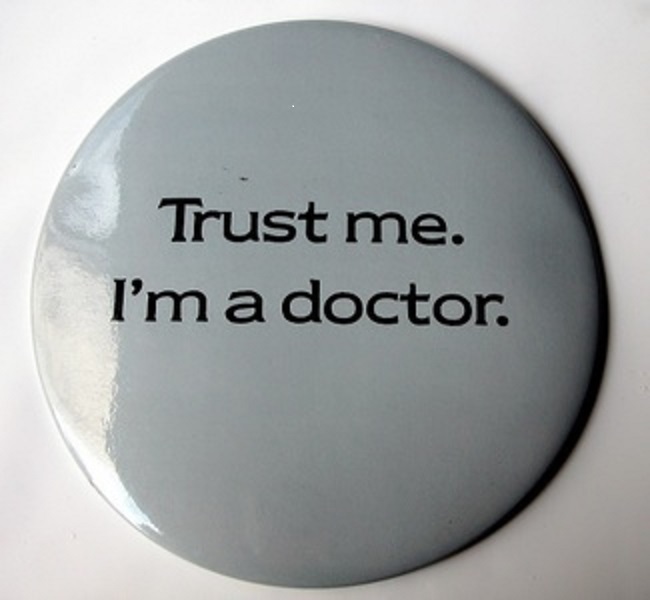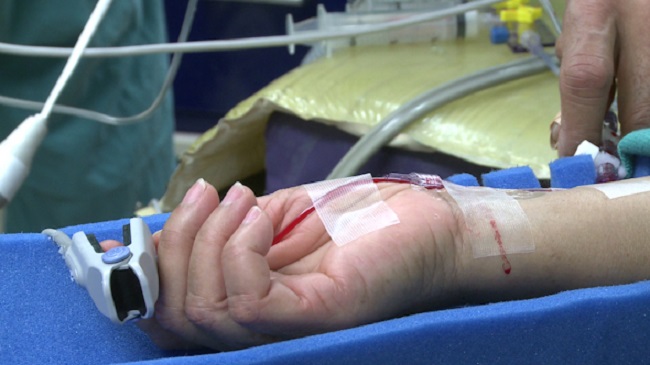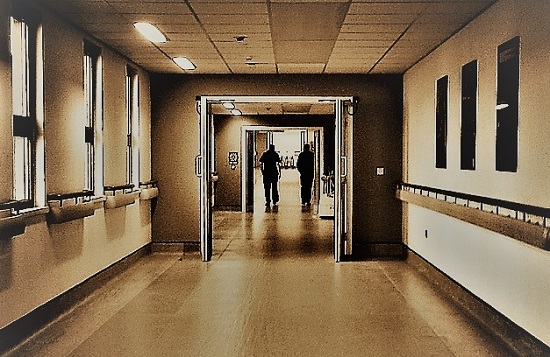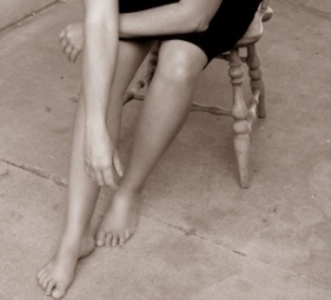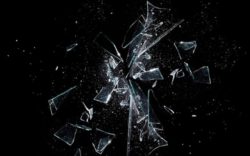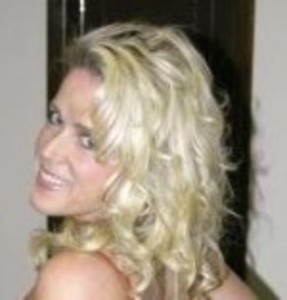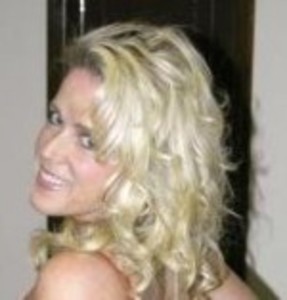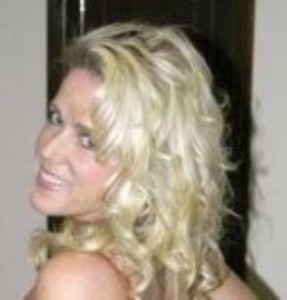It may seem like quite the leap from hysterectomy to suicide, but it really isn’t a leap at all. Hysterectomy with ovary removal induces what doctors refer to as “surgical menopause.” There’s really no such thing as “surgical” menopause. Hysterectomy with oophorectomy is the female equivalent to male castration and as such carries with it all the risks and associated hormone changes that one might expect when primary endocrine producing glands are removed. The precipitous drop in hormones, much like those experienced following childbirth, can and does have calamitous effects on mental health, not to mention physical health. Perhaps the only difference between male castration and female castration is the fact that female castration is performed regularly and without regard to the physiological and psychological side effects that ensue.
Why Write about Hysterectomy and Suicide?
I decided to write this post because I was castrated, against my will, without consent and have struggled with a myriad of health problems ever since. You can read my story here, here and here. In the years since my ovaries were removed, I have worked hard to spread awareness about the devastating health consequences that this common surgery elicits. Over those years, I have heard from hundreds of women who have experienced similar suffering.
“I was a bright light until a doctor murdered me on (she gives the “exact” date of her surgery). Only a woman with a complete hysterectomy can remember that date. I have had surgeries before, but I never remembered any of those dates. You will always remember when you went into have something done simply to stop heavy bleeding and going in as one person and then the doctor switching you with some kind of alien when you wake up. Within a year, I was 50 pounds overweight and my thyroid had a nodule on it that was cancerous. I had the worst fatigue and suicidal depression there could be.
I can’t believe I made it. I remember telling my 10 year old I didn’t want to live anymore and he kept saying “don’t say that momma, yes you do”. There is no one that could ever comprehend this hell unless they have been through it. I’m overweight with fibromyalgia and fatigue, talking myself out of suicide constantly. I have metabolic syndrome and I’m insulin resistant. I have constant lightheadedness, difficulty swallowing, broken out and dry skin. I have never even tried to go back to having sex simply because I stopped dating. I stopped being the happy, vivacious, beautiful woman I once was. I have been to 45 specialists in the last 10 years including Mayo Clinic to the point where I know I know more about hormones then they do!”
Another woman wrote to me recently stating she too was suicidal just thinking about the 1 year anniversary of her hysterectomy. She wrote:
“Exactly one year ago today, I was on an operating table being castrated and mutilated – the pain too much to bear. I wish I could stop this rapidly aging skin, body and hair loss. My body and soul are devastated. Shaking and in utter disbelief. The person I was before died the day of hysterectomy: my life, body, personality and every other aspect of the life I once knew is dead and over.
So, it is a rebirth of this hideous and painful existence of a stranger living inside a new broken body, soul, personality, etc. I very much relate to Frankenstein who was created in a laboratory unwillingly and without forewarning (informed consent) and awakened to a strange world he could not relate to nor understand. He was full of pain inside and out with all of those gory stitches, having to learn to walk, talk and the great torment he had of being here. Frankenstein is a fictitious character, but I can relate, for I, feel like a monster. I would give anything to be whole again. I know what I now am, and that is a “Castrati” and “Eunuch”.
More recently, a good friend that I came to know through my website committed suicide after years of struggling with post hysterectomy health issues. Before she died, Toni sent me her story in her own words and asked me if I’d post it on my site so other women could be warned about what life post-surgery is really like. She didn’t want what happened to her to be in vain. She wrote in part:
“I am a changed human being. I sometimes do not even want to get out of bed. My poor husband… he misses the woman and wife I was. She is gone. She was taken the day I had a hysterectomy. I am a “shell” of a woman now.”
This shouldn’t happen. Young women should not be castrated and then thrust into a world of ill-health and darkness. Hysterectomy, especially when the ovaries are removed too, should be an option of last resort, not something cavalierly recommended to young women, nowhere near menopause.
I wrote this post for the women who have lost their ovaries, lost their health, their vitality, their sex lives and their hope. I am not sure that I can give you hope, but I can give you a voice until you can find your own voice and together we can stop this practice and prevent other women from suffering.
Natural Menopause, Hysterectomy and Castration: It’s all about the Hormones
Natural menopause. It is important to talk briefly about the effects of “natural” menopause in order to better understand the effects of hysterectomy and castration. Even natural menopause is a “game-changer” for most women with some of the more commonly discussed symptoms being hot flashes, mood swings and dry vagina. ACOG lists over twenty adverse effects of menopause in their Menopause Patient Information Pamphlet including but not limited to: hot flashes, insomnia, dry/thin vagina, increased risk of urinary and bladder infections, increased bone loss and risk for fracture, loss of heart protection and increased risk of heart attack and stroke, emotional changes such as nervousness, irritability and fatigue, loss of libido and difficulty achieving orgasm. There are more symptoms not specifically listed, but these are enough to take your breath away. It is important to keep in mind that these symptoms develop gradually over years during the natural process of endocrine senescence or aging. The process is complicated and researchers still don’t understand the full spectrum of changes that happen when women age. Some hormones decline, others increase to compensate, immune factors are involved and the entire body changes to adapt to the new reality. The experience of menopause in each woman differs with some experiencing very few symptoms and others experiencing great difficulties. The key points are that menopause is gradual and complicated. It is not just the removal of estrogens and progesterone. Many other hormone systems recalibrate.
Hysterectomy without Oophorectomy. Hysterectomy without ovary removal is common. The thought is that if the ovaries are left in place, vital hormones will continue to be produced and circulated. To some extent that is true and women who retain their ovaries seem to fair better than those who do not. However, hormones work through feedback loops, the uterus contains many important hormone receptors that communicate with the ovaries. When the uterus and cervix are removed, those receptors are removed too. Without those receptors, communication ceases and the ovarian production of hormones will cease as well; more gradually than if the ovaries had been removed, but more rapidly than in natural menopause.
Castration. When the ovaries are removed, we call this castration. It is no different than removing a man’s testicles. Oophorectomy precipitates a radical change in hormones overnight. Symptoms hit within a matter of hours rather than years. Ovary removal is akin to a ‘cold turkey’ full throttle withdrawal from very strong drugs, the complexity of which we still don’t fully understand.
Concentrations of the estrogens and progesterone drop to nearly nothing, almost immediately, while testosterone concentrations decrease by half. In natural menopause, the adrenals can pick up some of the slack and produce more estrogens and other hormones, but with oophorectomy there is no time, just an immediate crash; a crash that most women, their families or their physicians are not prepared for, because nowhere in the literature given to the patients is this discussed.
Female Castration According to Experts
The American Congress of Obstetricians and Gynecologists (ACOG) calls female castrations ‘surgical menopause’ and although they recognize the severity of hormone changes in their professional literature: “The effects of surgical menopause are severe due to hormone levels decreasing all at once,” the severity of the hormone dysregulation initiated by surgical menopause is not even mentioned in their patient literature: ACOG’s Hysterectomy Patient Information Pamphlet. In fact, the term “surgical menopause” is not even used. Instead, the pamphlet says
“Depending on your age, if your ovaries are removed during hysterectomy, you will have signs and symptoms caused by a lack of estrogen, which include hot flashes, vaginal dryness and sleep problems. You also may be at risk of a fracture caused by osteoporosis at an earlier age than women who go through natural menopause. Most women who have these intense symptoms can be treated with estrogen.”
There’s no mention of castration or even the more benign term surgical menopause. If these terms were mentioned, some women might think to look for a pamphlet about those topics. In other words, they’d connect the dots. As things stand now, there are no dots to connect. The severity of the side effects are downplayed considerably.
The Myth of Hormone Replacement Therapy Post Hysterectomy
To make matters worse, many castrated women are left with no way of supplementing the hormones they’ve lost. They’re simply sent on their way. Others are prescribed a “one size fits all” hormone therapy such as Premarin which is derived from the urine of pregnant mares. While it may work for some women, it comes with serious side effects and doesn’t seem to work for women who have been castrated, likely because the ovaries produce more than just the estrogens and synthetic hormones are not capable of replacing what the body produces on its own.
“I am a 46 old and had a hysterectomy for which my uterus, cervix and both ovaries were taken in 2011. This was due to having endometriosis since I was 22 and having it laparoscopically removed three times, for which my doctor had advised to just have total hysterectomy instead of surgeries. I, however, wanted to hold on to my ovaries. That day did come that I agreed to have all removed, and can I say that I count that as the last day of my life. I have been living in a life just short of a Stephen King novel. I decided after surgery to wing it with no HRT at all and done that for a whole year. In 2012, I decided to try Premarin at the suggestion of my doctor. This was because of the night and day sweats, intense cold spells, horrific mood swings, insomnia, drastic weight gain, memory loss and forgetfulness and loss of libido to name a few symptoms that had gotten to me severely. The hormones worked for 1 month. Then all symptoms came back with a vengeance! My doctor wanted to double my dosage of premarin, but my scare of cancer quickly stopped that. I am now holding on day by day. I have lost half of my hair since coming off HRT. Every day, suicidal thoughts are in my mind, I mean it is all so hopeless to me. Just wish I could reverse the surgery, but that is not possible. HELP”
Sadly, many doctors even prescribe psychotropic drugs, as if they could somehow replace a woman’s own natural hormones.
Depression Post Hysterectomy
Depression is a very common problem for women who’ve been castrated, but one that is rarely acknowledged appropriately. Given the vast biochemical changes a woman’s body is thrust into, it seems likely that she could be propelled into a severe depression and should be warned accordingly, before the surgery.
To better understand how traumatic castration can be, consider a few things we now know about women going through “natural” menopause: 1) women going through natural menopause are three times more likely to be diagnosed with depression than the general population 2) this is true even when there is no prior history of depression and maybe most surprising 3) natural menopause is a time in a woman’s life when she is most likely to commit suicide. Of course, women who’ve been castrated are at the highest risk of all due to the immediate drop in hormones and the severity of symptoms. Add this to the fact that a castrated woman’s adrenal glands are suddenly placed under the extreme stress of taking over for missing ovaries and other organs throughout the body become likewise stressed. All of this additional stress on the body’s organs and systems can, of course, lead to diabetes, autoimmune diseases, heart disease, brain diseases, cancer, etc.
Depression Post Female Castration
Depression brought on by castration is unique in that it only happens to women undergoing this certain type of life change – this specific surgery. It’s much more than just a bout of the blues. It isn’t a weakness or flaw in character, nor is it something that you can simply “snap out” of. No – this type of depression may require long-term treatment. Stanley West MD, author of “Hysterectomy Hoax”, wrote “…this is much more than the blues; it is serious enough to require hospitalization for some women, lengthy counseling and drug treatment.” The chemical imbalances brought on by castration can lead to a woman becoming clinically depressed. And if the depression continues, then suicide becomes a genuine risk factor.
Is There Help?
So, where exactly does a castrated woman turn for help? Since this type of depression stems from an imbalance of hormones that includes the loss of vital estrogens, progesterone, and androgens, hormone therapy becomes all the more important since it raises those levels again to some extent. However, castrated women may also require a wide range of hormone supplements. Combinations of estradiol and estriol may be necessary and these should be balanced with progesterone and sometimes testosterone. DHEA might need to be added too. Because sex hormones are important to so many other hormone systems in the body, a woman who has undergone castration may also need supplements to help with her thyroid and adrenal glands.
For counseling, reach out to the resources in your area. A brief list can be found here.
Castration requires close follow-up care. And yet, very few doctors seem to be seriously engaged in helping castrated women regain their health and vitality. This is yet another reason women become depressed. There’s really nowhere to turn for help. Instead, most women find out very quickly that all of their post-surgery “complaints” will be dismissed as a mental problem of some sort. ACOG mentions only one reason for “emotional changes” post-hysterectomy: “Some women feel depressed because they can no longer have children.” Personally, I’ve not heard from one woman who said they felt depressed for this reason. The women I hear from tell me they’re often made to feel that nothing is “really” wrong with them – that it must all be in their head. In short, they’re made to feel “crazy”. But the issues are real. Read any of the stories below and there is no doubt that the suffering is legitimate. Hormones impact brain chemistry as well as every other physiological system in the body. Remove a primary source for those hormones and there will be problems. How can there not be?
The Reality of Ovary Removal
This is what women who have been castrated say about their lives post-surgery. Let me warn you: it’s not pretty. Please note that some comments have been edited for brevity. It’s the same story over and over and over again. Only the names change.
“I have not been the same woman since my hysterectomy. Within one week of surgical menopause, at age 42, I became clinically depressed. It went downhill from there — no sex drive, weight gain, anxiety plus depression, bone loss and energy loss. Basically, I’ve felt like I was falling apart. I have been on the estradiol patch and an antidepressant since my hysterectomy. I would have kept my ovaries if I had known what would happen.”
“I had a hysterectomy 2 years ago. Since then, I have had nothing but trouble. The surgeon took away my ovaries, so I have no estrogen in my body – only testosterone. This makes me very angry all the time. I refuse to take HRT because my mother had breast cancer. I have no interest in sex whatsoever, and am on anti-depressants all the time. Hysterectomy has ruined my life, and if I could go back, I would not have had it done. I would have just put up with the fibroids. My advice to anyone contemplating this is to think long and hard. If there is an alternative route you can take, do so! I would not wish this on my worst enemy!”
“I will be turning 40 this year and 3 years ago I had my hysterectomy. Ever since then, I have not been the same. I’ve gained weight, have hot flashes, aches and pains everywhere and am moody. If I had to do it over, I would never have a complete hysterectomy. I used to be full of life and now all I want to do is hate the world or cry over everything.”
“When I woke up in ICU almost 24 hrs later with a tube in my throat I motioned for a pen and wrote the word hysterectomy with a question mark. I don’t know how I knew, I just did. After the doctor carelessly punctured my uterine artery he decided that the best way to fix his mistake was to take out everything that made me a woman. He nearly killed me. They had to give me 15 units of blood while they frantically carved out more and more. He never even came to see me after he butchered me to explain what happened or why he ruined my life and my families’ future. I have never seen him again. I am 35yrs old in surgical menopause. Some days I wonder if my young husband will leave me for a woman that can still have children. I have never posted a comment on any site about anything. I read your story and felt that you were the first person that knew what I was feeling.”
Sadly, there are more similar hysterectomy comments and stories on my website which I refer to as “hysterectomy hell”. You can read those stories here and here. There are forums and blogs all over the Internet too where women gather and pour out their inner-most feelings about their lives after surgery. Most women can’t sleep, so they reach out during the night for help, seek answers for what’s happened to them and otherwise just try to fill the void.
Families of Women Who Have Been Castrated
One adult child wrote about her mother’s hysterectomy:
“After we moved to a ranch house in an exclusive residential suburb of Minneapolis when I was 8, my mother stopped singing. That wasn’t the only change in her during the summer of our elevation from middle- to upper-middle class. Her hair seemed to turn white very suddenly and her personality altered just as drastically.
I learned to test the air when I got home from school, trying to discover what mood she was in that day: playful, full of games and secrets, or grim and tight-lipped, on the edge of tears.
Later, I discovered from old medical records that Mother had had a hysterectomy during the summer of our move, when she was only 38. Being plunged into early menopause could explain her mood swings, I now realize, the tearful scenes, the tranquilizers, but then my 8-year-old mind developed a theory that my sweet, raven-haired mother had somehow been kidnapped and replaced by a white-haired virago who resembled her. I remember poring over the family photographs in the mahogany sideboard, trying to determine when the substitution had taken place. Mother never sang to us again after that summer and when we asked her to, she replied that her voice was gone: ‘I’m too old to sing’.”
I could share so many more heart-wrenching comments and messages like these, but I feel I’ve shared enough to substantiate that women who undergo hysterectomy and castration, especially when uniformed, misinformed or not informed at all, suffer beyond words really and so do the families. There’s certainly no shortage of post-hysterectomy horror stories. Maybe woman who undergo hysterectomy and castration to save their life are better able to cope. I don’t know. What I do know is that far too many hysterectomies are performed for other reasons and many of those women feel extremely betrayed. They never get over it as the many comments here suggest. In the case where there’s no consent, hysterectomy and castration is considered assault and battery. That’s criminal and that’s a very big deal. Women who’ve been surgically “assaulted” have even more trauma to come to terms with. There’s not much a woman in this situation can do other than file a medical malpractice suit against her doctor. Maneuvering and enduring the legal system is yet another nightmare all its own and isn’t a reality for most women (“victims” in the case of unconsented surgery).
There can be no question that so many women are experiencing profound depression. This is not something we can continue to ignore. This is a very real problem everybody should take seriously. After all, we’re talking about over half a million women going through this every year just in the United States alone. From a public health point of view, depression is a substantial illness with significant morbidity for patients (and their families). If the depression continues, then suicide absolutely becomes a genuine risk factor. It is so important for families of women who’ve undergone hysterectomy and castration to realize how serious the resulting depression can be and what it can lead to.
Personally, I’d love to see a huge drop in the number of women undergoing these mostly “unnecessary” and “elective” surgeries. Until such time, we’ve no choice but to begin this discussion in hopes of saving precious lives. Depression can be managed only when we talk about it openly – when there is no shame. Managing depression may include: hormone replacement therapy, talk therapy, proper diet, exercise, meditation (including prayer of course) and medication too if necessary. While I’m no psychologist, I can tell you what has helped me survive post-hysterectomy depression. I’ve learned that it is critical to fix what’s fixable. Restore balance back by doing what you’re still able to do – whatever that is; it will be different for every woman. Like the “Prayer of Serenity” change what you can, deal with the rest. We all only have so much energy left after such a life-altering surgery, so we need to learn to focus and use our energy on things we can change. This is by no means easy to do.
My Story
To be completely honest, I still struggle with depression since my unconsented hysterectomy. I guess I always will. And yes, I’ve been suicidal at times too. And while there may not be a “cure” for this type of depression, it helps a lot for women to know and understand they are not “crazy” or alone. Before social media and personal computers, women mostly suffered in silence. There’s no need for that today though. A doctor from Australia who specializes in menopause and hormones once told me not to waste what I’ve suffered and so I’m trying to follow his advice. Specifically, he said
“You can’t waste what you have suffered. Others need not just to know, but to understand the depth of that hole, and how hard it was for you not just to climb out of it, but how hard it was to even have the energy or will to turn around as you plummeted to the bottom. And more than anything, they need to know that you can!”
So, we absolutely must start talking about the hysterectomy hole. We must share our stories so that others do not suffer as we have. And doctors too must stand up and speak out. If you’d like to share your story here on Hormones Matter, Write for Us.
Help us understand the consequences of hysterectomy – take a survey. The Hysterectomy Survey.
Sign a Petition to End Unnecessary Hysterectomies
Contact the Author
- Website: Hysterectomy Consequences
- Blog: Hysterectomylies
- Twitter: www.twitter.com/jiggaz31
- Facebook: www.facebook.com/hysterectomyconsequences
- change.org petition: Help Stop Unnecessary Hysterectomy and Castration
This post was published previously in July 2014.
We Need Your Help
Hormones Matter needs funding now. Our research funding was cut recently and because of our commitment to independent health research and journalism unbiased by commercial interests we allow minimal advertising on the site. That means all funding must come from you, our readers. Don’t let Hormones Matter die.
